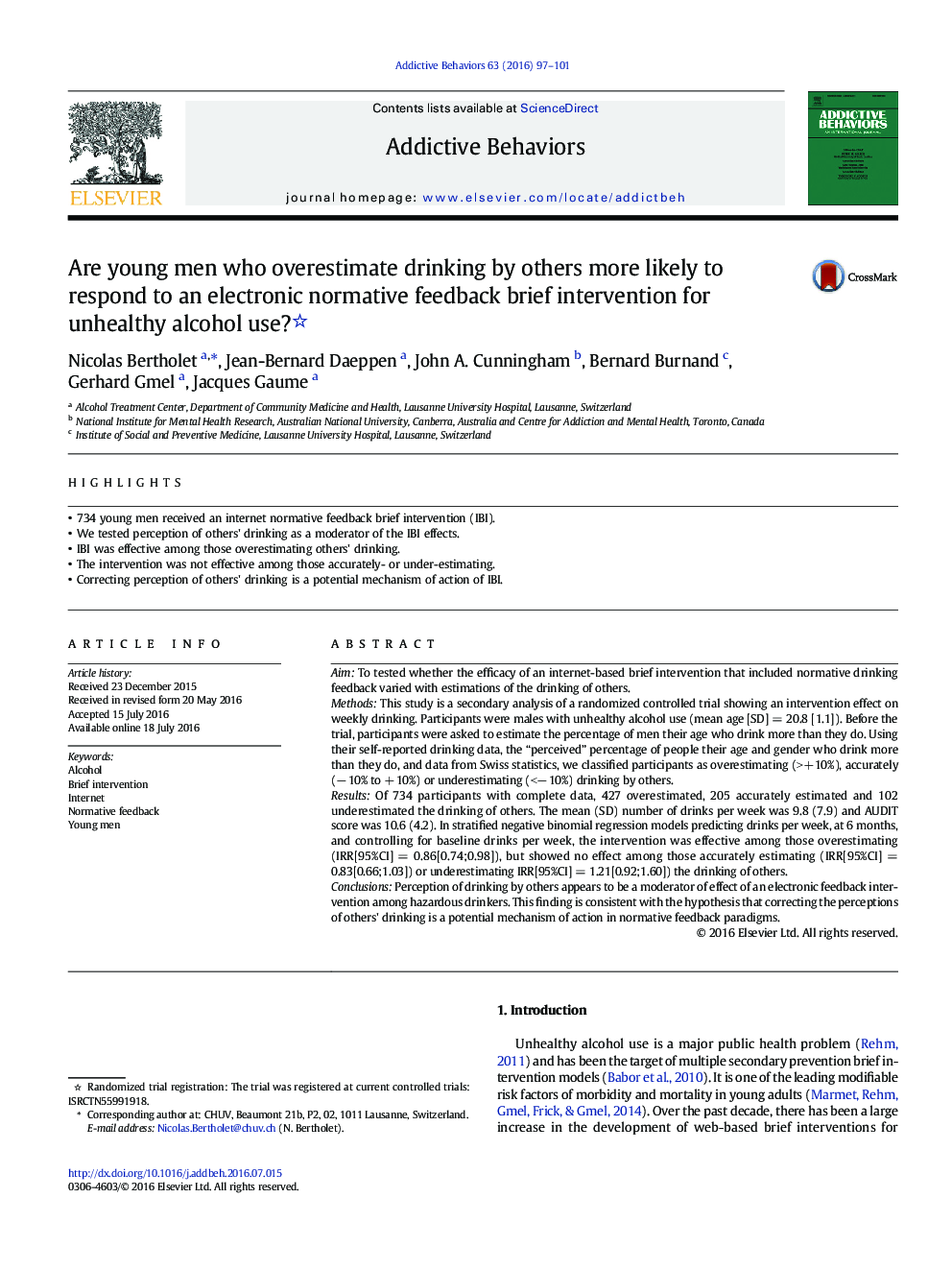| کد مقاله | کد نشریه | سال انتشار | مقاله انگلیسی | نسخه تمام متن |
|---|---|---|---|---|
| 898566 | 1472508 | 2016 | 5 صفحه PDF | دانلود رایگان |
• 734 young men received an internet normative feedback brief intervention (IBI).
• We tested perception of others' drinking as a moderator of the IBI effects.
• IBI was effective among those overestimating others' drinking.
• The intervention was not effective among those accurately- or under-estimating.
• Correcting perception of others' drinking is a potential mechanism of action of IBI.
AimTo tested whether the efficacy of an internet-based brief intervention that included normative drinking feedback varied with estimations of the drinking of others.MethodsThis study is a secondary analysis of a randomized controlled trial showing an intervention effect on weekly drinking. Participants were males with unhealthy alcohol use (mean age [SD] = 20.8 [1.1]). Before the trial, participants were asked to estimate the percentage of men their age who drink more than they do. Using their self-reported drinking data, the “perceived” percentage of people their age and gender who drink more than they do, and data from Swiss statistics, we classified participants as overestimating (>+10%), accurately (− 10% to + 10%) or underestimating (<− 10%) drinking by others.ResultsOf 734 participants with complete data, 427 overestimated, 205 accurately estimated and 102 underestimated the drinking of others. The mean (SD) number of drinks per week was 9.8 (7.9) and AUDIT score was 10.6 (4.2). In stratified negative binomial regression models predicting drinks per week, at 6 months, and controlling for baseline drinks per week, the intervention was effective among those overestimating (IRR[95%CI] = 0.86[0.74;0.98]), but showed no effect among those accurately estimating (IRR[95%CI] = 0.83[0.66;1.03]) or underestimating IRR[95%CI] = 1.21[0.92;1.60]) the drinking of others.ConclusionsPerception of drinking by others appears to be a moderator of effect of an electronic feedback intervention among hazardous drinkers. This finding is consistent with the hypothesis that correcting the perceptions of others' drinking is a potential mechanism of action in normative feedback paradigms.
Journal: Addictive Behaviors - Volume 63, December 2016, Pages 97–101
